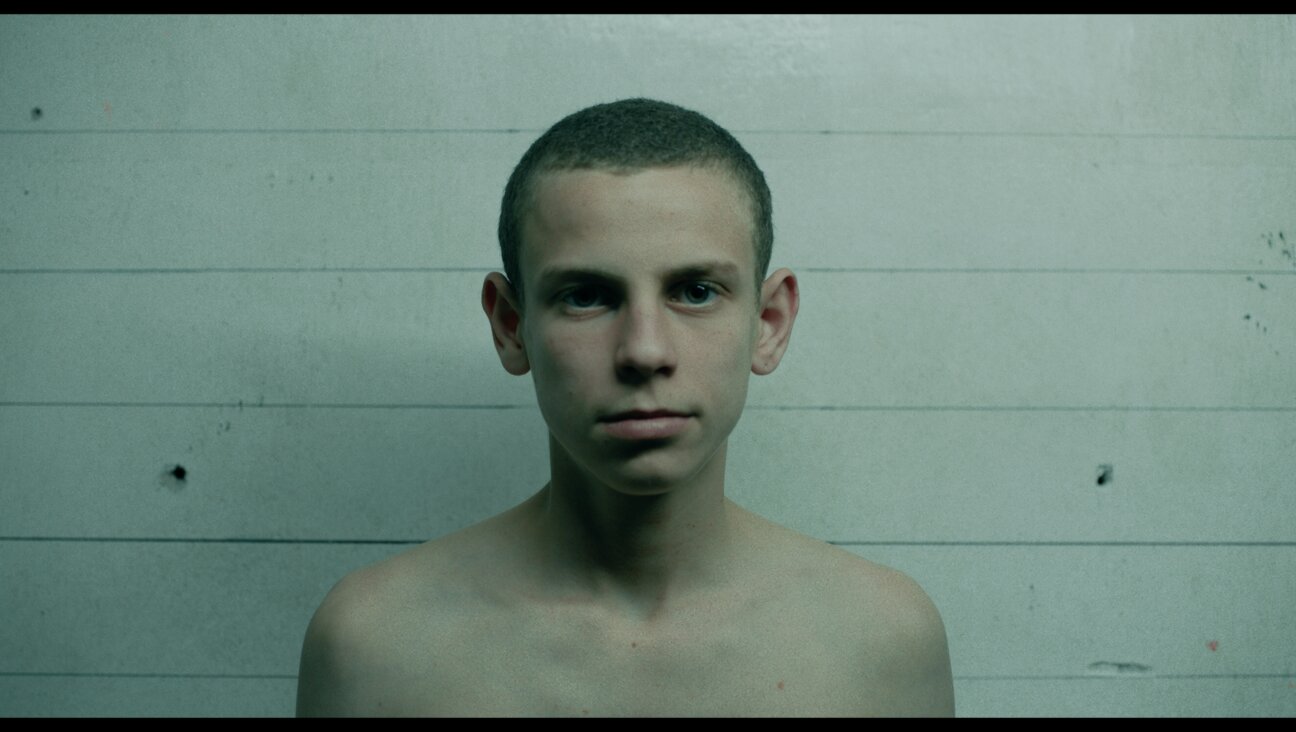Spielberg Joins Katzenberg For A Spooky Series You Can Only See At Night
Is Quibi the next big thing?

Jeffrey Katzenberg and Steven Spielberg in 2013 Image by Getty/ Dimitrios Kambouris/Staff
Director Steven Spielberg is partnering with longtime film executive Jeffrey Katzenberg’s forthcoming streaming service, Quibi, for a smartphone horror story you can watch only in the witching hour.
Defying the advice of sleep experts — who caution us to avoid our phones’ pesky blue light in the hours leading up to sleep — the multi-chapter series, which has the vaguely Cinemax-sounding working title of “Spielberg’s After Dark,” will only appear to viewers at the chimes of midnight, Variety reports.
“Steven Spielberg came in, and said, ‘I have a super scary story I want to do,’” Katzenberg said at the Banff World Media Festival in Canada on June 9. “He’s writing it himself. He hasn’t [written anything for a while] so getting him to write something is fantastic.”
Katzenberg’s Quibi streaming platform (short for “quick bites,” as all the entertainment is designed to be between seven to 10 minutes long) has boasted A-List talent and high-profile backers since Katzenberg announced the mobile-exclusive project in 2017 under the name “NewTV.” But Spielberg’s after-midnight-only conceit is unique and could help set Quibi apart in a crowded field of streamable content.
To restrict when audiences stream the show, Katzenberg and his CEO Meg Whitman had their engineers use a cell phone’s ability to track the sunrise in its given area to prompt viewers with a clock ticking down the hours till a midnight screening. Per Variety, the clock fades when the sun comes up and the show does too, only reappearing the next night.
Quibi’s launch is slated for April 2020 with a two-week free trial and eight “super premium” offerings. We don’t yet know if Spielberg’s spooky series will be available day one, but we anticipate the show will provide us with a lot of sleepless nights.
PJ Grisar is the Forward’s culture intern. He can be reached at [email protected].
The Forward is free to read, but it isn’t free to produce

I hope you appreciated this article. Before you go, I’d like to ask you to please support the Forward.
Now more than ever, American Jews need independent news they can trust, with reporting driven by truth, not ideology. We serve you, not any ideological agenda.
At a time when other newsrooms are closing or cutting back, the Forward has removed its paywall and invested additional resources to report on the ground from Israel and around the U.S. on the impact of the war, rising antisemitism and polarized discourse.
This is a great time to support independent Jewish journalism you rely on. Make a gift today!
— Rachel Fishman Feddersen, Publisher and CEO
Support our mission to tell the Jewish story fully and fairly.
Most Popular
- 1

Fast Forward Ye debuts ‘Heil Hitler’ music video that includes a sample of a Hitler speech
- 2

Opinion It looks like Israel totally underestimated Trump
- 3

Culture Cardinals are Catholic, not Jewish — so why do they all wear yarmulkes?
- 4

Fast Forward Student suspended for ‘F— the Jews’ video defends himself on antisemitic podcast
In Case You Missed It
-

Culture Should Diaspora Jews be buried in Israel? A rabbi responds
-

Fast Forward In first Sunday address, Pope Leo XIV calls for ceasefire in Gaza, release of hostages
-

Fast Forward Huckabee denies rift between Netanyahu and Trump as US actions in Middle East appear to leave out Israel
-

Fast Forward Federal security grants to synagogues are resuming after two-month Trump freeze
-
Shop the Forward Store
100% of profits support our journalism
Republish This Story
Please read before republishing
We’re happy to make this story available to republish for free, unless it originated with JTA, Haaretz or another publication (as indicated on the article) and as long as you follow our guidelines.
You must comply with the following:
- Credit the Forward
- Retain our pixel
- Preserve our canonical link in Google search
- Add a noindex tag in Google search
See our full guidelines for more information, and this guide for detail about canonical URLs.
To republish, copy the HTML by clicking on the yellow button to the right; it includes our tracking pixel, all paragraph styles and hyperlinks, the author byline and credit to the Forward. It does not include images; to avoid copyright violations, you must add them manually, following our guidelines. Please email us at [email protected], subject line “republish,” with any questions or to let us know what stories you’re picking up.
















